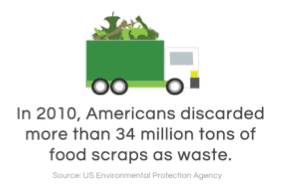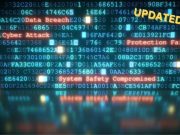 by, Larry LeSueur, CEO, WISErg
by, Larry LeSueur, CEO, WISErg
It’s a remarkable statistic: on Thanksgiving Day, Americans will waste enough food to fill California’s Rose Bowl stadium. That’s a tragedy on several levels. First, it’s hard to fathom — let alone accept — so much waste in a country where many people still go to bed hungry at night.
In 2011, the U.S. wasted 36 million tons of food, 96 percent of which ended up in our landfills or incinerators. When you consider the number of people in America without enough to eat, not to mention the energy cost of producing, transporting and disposing of food that never gets eaten, it’s clear this is a problem that needs a solution.
On average, America is losing up to 40 percent of its food in the process of going from farm to fork to landfill. Reducing that loss by just 15 percent would give another 25 million Americans enough food to eat yearly, according to a study by the National Resources Defense Council.
Furthermore, in “The Food Wastage Footprint,” a report published by the U.N. Food and Agriculture Organization (FAO), it was noted that food is the single largest type of waste going into landfills. The report estimated that the carbon footprint of wasted food was the equivalent of 3.3 billion tons of carbon dioxide per year — costing taxpayers about $750 billion annually.
 While there are many organizations working to divert food waste from ending up in landfills through composting, as an example, a number of exciting technologies are also being developed that reduce food waste in the supply chain. Here in the Puget Sound, where we’re known for our ecological sensitivity and our technological creativity, we have several emerging technologies that will permanently disrupt our perception of waste.
While there are many organizations working to divert food waste from ending up in landfills through composting, as an example, a number of exciting technologies are also being developed that reduce food waste in the supply chain. Here in the Puget Sound, where we’re known for our ecological sensitivity and our technological creativity, we have several emerging technologies that will permanently disrupt our perception of waste.
At WISErg, a Redmond-based startup, we’ve designed a new approach to recycling leftover food by proposing a closed loop that extends from grower to grocer to consumer and back to the grower in the form of organic fertilizer. The key to the success of this virtuous circle is a technology solution that enables grocers and commercial kitchens to significantly reduce the amount of discarded food scraps generated by their organizations. Known as The Harvester™, it also intercepts food scraps before they become waste and extracts nutrients which are then refined into a locally based, natural agricultural fertilizer.
Supermarkets lose an estimated $15 billion annually through discarded produce. The Harvester gives these grocers a methodology for preventing some of their losses by using data to show how and where food waste is occurring to improve planning and reduce haulage fees. As an example, PCC Natural Markets was the first to deploy a Harvester; the Harvester generates reports that help the Issaquah and Redmond stores reduce their shrinkage.
We’re not alone in our efforts to promote sustainability as a business practice. Other examples of area startups looking to technology for advances in sustainability include General Biodiesel, which refines a low carbon fuel from used cooking oil, and Tayasola, an organization dedicated to helping people and communities learn to generate their own clean, sustainable energy. In fact, Seattle is home to a unique incubator for startups, Fledge, which helps entrepreneurs bring new consumption conscious products and technology to market.
So this Thanksgiving, as we gather around our tables with friends and families, we’ll be more mindful of our food consumption. We’ll also appreciate the technological advancements that are addressing food cycles, sustainability and waste so that, in future years, we won’t be filling the equivalent of the Rose Bowl with scraps of food. [24×7]
Larry LeSueur is the CEO and co-founder of WISErg, a Seattle area hybrid technology startup combining bio-, clean-, and high-tech systems to create a revolutionary solution for managing urban organics. He can be reached at [email protected]
















